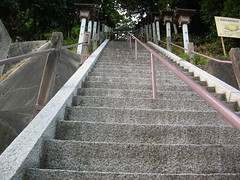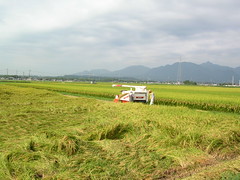At asahi.com, there was an article published,
Shinichiro Noriguchi: English education leaves much to be desired (I also Furled it so that if the removed it from the server...) The article gets me going, "Yeah, finally someone who says what I've been thinking," and then it goes terribly wrong.
...the number of shallow-minded youths is ever increasing.
How many times have we heard this? In Japan the number is clearly decreasing with the decline in population. Of course youth is shallow-minded. They are young.
First, let me clearly say that Japanese society has been completely duped by the idea that the TOEIC test and the development of "communicative" skills in English will finally solve the long-standing problem of inept English education.
Yes! I can get behind this.
Students can achieve higher scores by taking TOEIC-focused classes and cramming. It is for this reason that Japanese English instructors can do a better job teaching TOEIC classes than native-speaking English teachers.
Whoa! Lost me here. I was all fired up, and reading like crazy, and then this came along, stopping me like axel-deep mud. Where is the evidence that Japanese English instructors can do a better job? Where did he get this information? I can imagine that there are more Japanese teachers actually teaching these classes, though I have no evidence for this, but doing a better job? What does that mean, anyway?
The government, in particular the education ministry, together with Japanese corporations, have been accomplices in creating this lamentable situation.
The companies that create and cater to the TOEIC test probably can't stop laughing at this situation from which they derive great profit.
Yeah, back on board! This is the word.
The best way to correct this problem is to have our writing in English corrected by native English teachers, but this is not always possible. They must earn a living. Many are part-timers teaching a large number of classes at various universities, where they often simply go through the motions of teaching.
Where did that come from? A roundhouse out of nowhere leaves this writer reeling, vision fading... Many are part-timers because it is legal for public universities to discriminate against non-Japanese teachers, and are hired on inferior terms, expected to produce more, and are not given the protections that society offers their Japanese counterparts. GOING THROUGH THE MOTIONS... where is his evidence for this slander? When was the last time he observed a classroom? What does that mean anyway? This is total irresponsibility, casting dispersion on a whole group of teachers without the slightest bit of evidence, other than saying that he has 40 years of experience at the beginning of the article. This is unprofessional and shallow-minded. (Hey, didn't he accuse someone else of being that?)
In particular, native speakers who have lived in Japan for more than 10 years tend to have adapted to the system and have become ineffective as teachers--this is also partly because their English has become Japanized and is spoken to suit the ears of their Japanese students. Some of these teachers are not aware of this.
Now here is where I really get upset. 10 years, a magic number I assume. And teachers who have lived here for more than that magical length of time have "adapted to the system," or maybe it's more like they've learned too much Japanese and too much about the education system so they can see that the king isn't wearing any clothing. Maybe that's it. And maybe he has some research that shows that these teachers, and only "native speakers," a term he does not bother to clarify, become ineffective after that length of time.
It is, of course, Japanese university teachers of English who are most responsible for the depressing results of university-level English instruction.
No one is spared his unprofessional criticism.
The English ability of English-teaching staff is, frankly speaking, often poorer than that of capable students, especially when it comes to speaking and listening comprehension.
My English teaching colleagues at this university are fluent in the English language, and are dedicated scholars and teachers. I respect them and their abilities, which are considerable, and credit them with contributing to the high educational standards at this school. They have made significant contributions to their students and to society as a whole.
No constructive outcome can be achieved by a teacher attacking other teachers without evidence. Professor Noriguchi was given a privilege position from which to write and publish his ideas, and from there has chosen to slander an entire profession.




